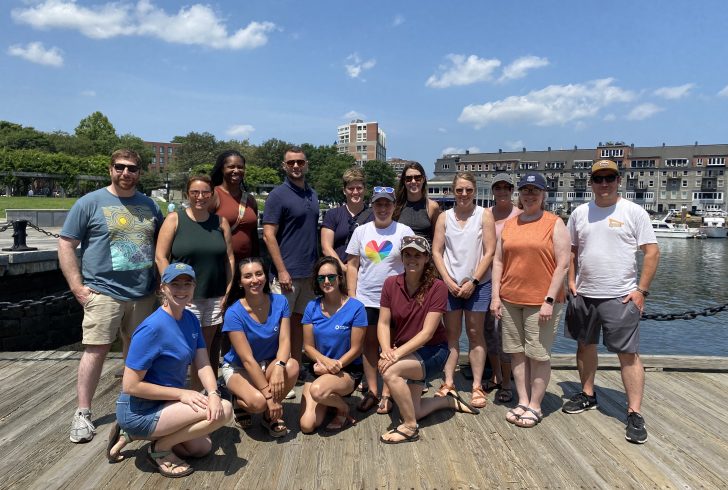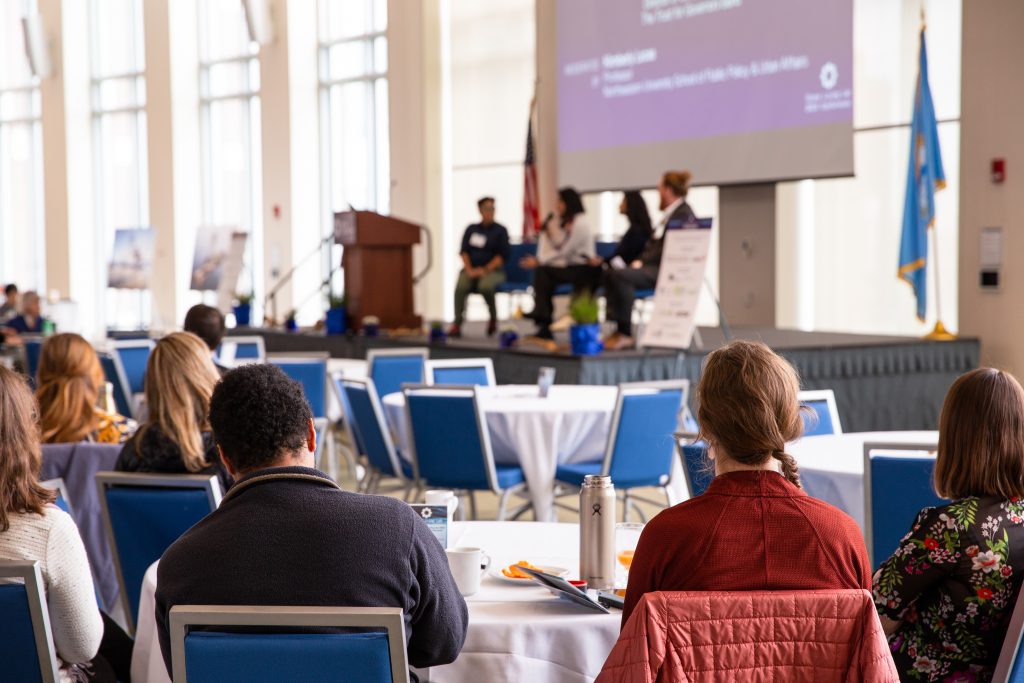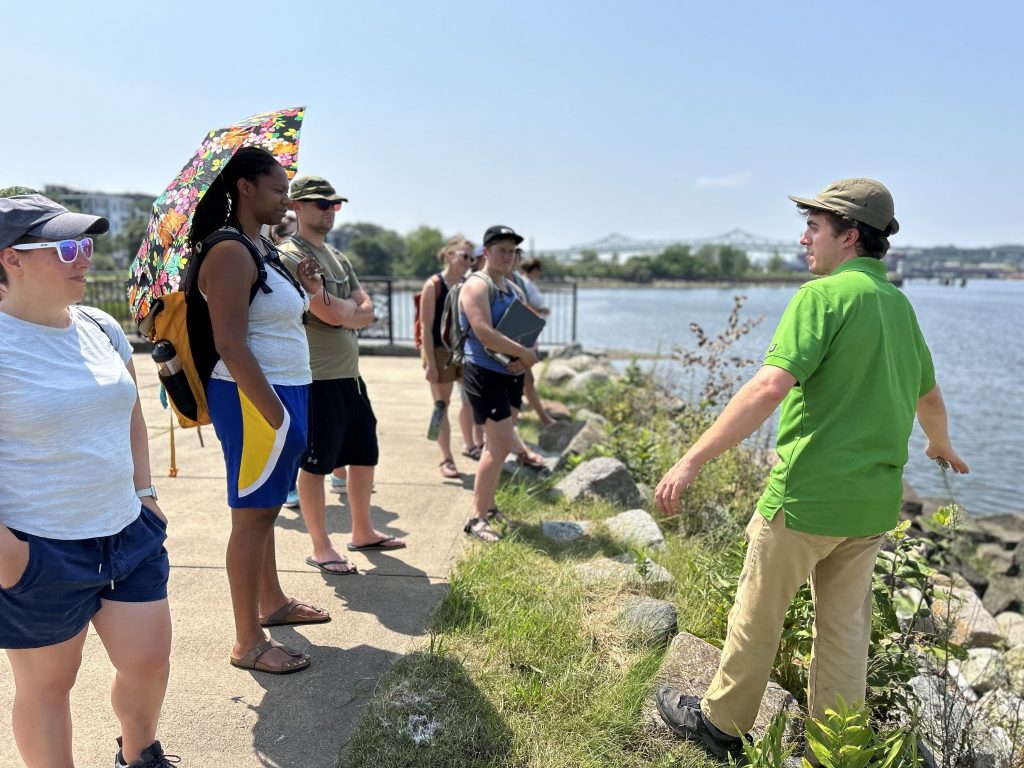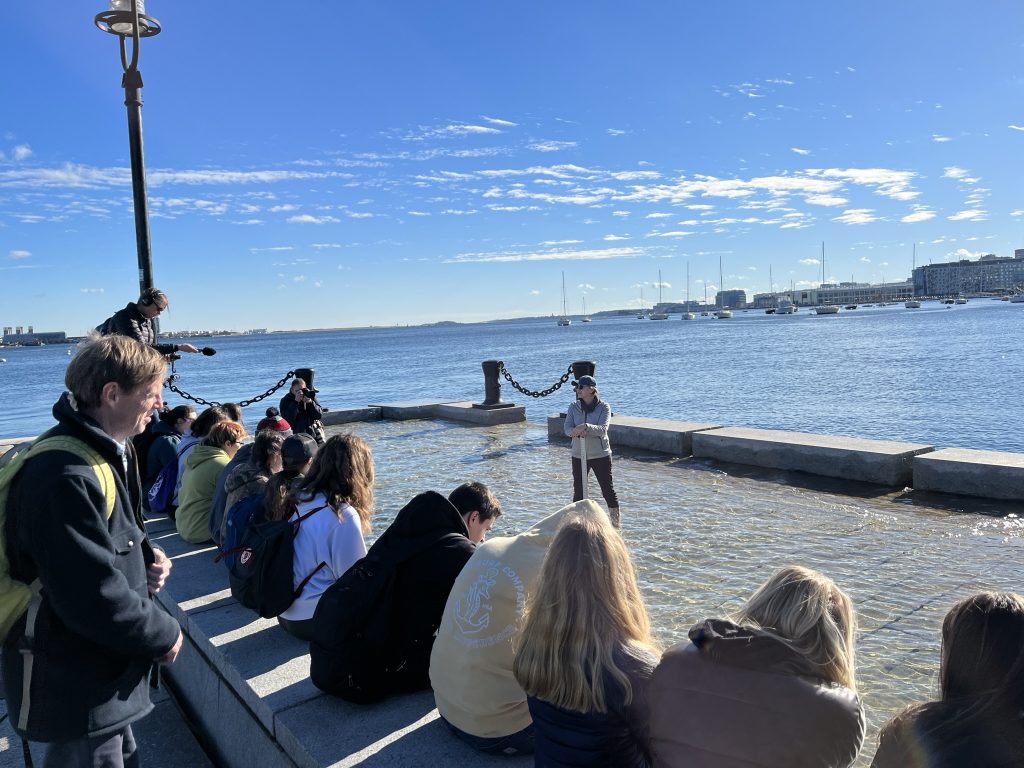Education & Engagement: 2023 In Review


2023 was an exciting year at the Lab! In addition to our research & monitoring work, our education & engagement team led many enriching programs and events, which you can read about below.
We are thankful for all of our wonderful staff, advisors, and partners, and we look forward to 2024!
We began 2023 focused on our first ever in-person conference, Nature-Based Coastal Resilience in Urban Settings, held at UMass Boston in late April. The 3-day conference offered more than 250 participants and attendees the chance to convene and consider how we can all join together to create a future where people work with nature to make coastal regions resilient and adaptive to climate change. The conference featured 2 keynote panels, 1 keynote talk, 12 breakout panel presentations, and 3 field trips following tracks or themes: Permitting, Policy, & Financial Implementation, Assessment of Success, and Nature-Based Approaches and Social Equity. Click here to view recordings of keynote sessions.

Participants listen to the keynote panel on day 2 of the 2023 Stone Living Lab Conference: Nature-Based Coastal Resilience in Urban Settings
This spring, the Lab’s Education and Engagement Program Manager, Rebecca Shoer, and Cathy Radonic (NPS) joined fifth graders from Samuel Adams Elementary in East Boston for four place-based lessons. Using our essential question “How do we know when something is changing?”, we explored phenology, or the study of changing seasons. We introduced students to three native species, and investigated how they know when the seasons are changing. Each of these species relies on the other, and depending on the temperature or day length they might bloom, hatch, or feed. As climate change disrupts these signals, however, species are becoming disconnected from one another.
During two field trips with our students, we visited the Rockies Urban Wild in East Boston and Spectacle Island. Both of these trips gave students the opportunity to visit unique green spaces and explore them through the lens of data collection. Read more about our time with the Adams school here.

Nick Long (City of Boston), talks to Teacher Institute participants about the coastal plants found at Condor Street Urban Wild.
We hosted our second Summer Teacher Institute, welcoming 11 Boston area teachers for five days of learning. This year we brought in lots of partners to meet with teachers and share participatory science opportunities, explored Boston Harbor, and even took a Harbor-wide ferry ride to keep cool during a heat wave. Our participants developed and shared their lesson plans with staff during our end-of-summer share out, and are now in the process of implementing their lessons in the classroom! You can read more about this year’s Institute here.
We were so excited this summer to welcome our first two interns to the Education and Engagement program: Hope and Daria! Bringing lots of outreach and programming experience, as well as scientific expertise, Hope and Daria engaged with hundreds of students, visitors, and residents throughout the summer at community events and the Teacher Institute. Although they are now off to lab work and graduate school, they are an integral part of the Stone Living Lab network.
The perigean spring tides – or “wicked high tides” – of fall 2023 delivered an awe-inspiring showcase of the power of water and how sea level rise is already impacting Boston. We were joined by students, residents, visitors, and reporters for three high-tide events at Long Wharf, as well as our partners at Boston Children’s Museum at Fort Point Channel. These tides are an important opportunity for us as a community to come together and experience what the future may hold for our city, and discuss ways we can prepare for changes coming in future decades.

Stone Living Lab Education & Engagement Program Manager Rebecca Shoer speaks to high school students about perigean spring tides, or “wicked high tides”, at Long Wharf in November 2023.
Woods Hole Group and SLL staff created a series of education and training opportunities for municipal staff and coastal professionals along Massachusetts’ coast, to learn about nature-based approaches and cobble berms. After collecting input from a focus group of municipal employees, we organized and ran four field courses, exploring Boston Harbor and cobble berm sites across Massachusetts. We have now built a strong network of coastal professionals, and using their feedback and expertise are currently developing a new series of workshops, factsheets, and videos to support further learning about cobble berms. Read more about this work here.
For more information on all of our work, please visit our website and review our summaries on research, monitoring, and education projects, which are released quarterly.